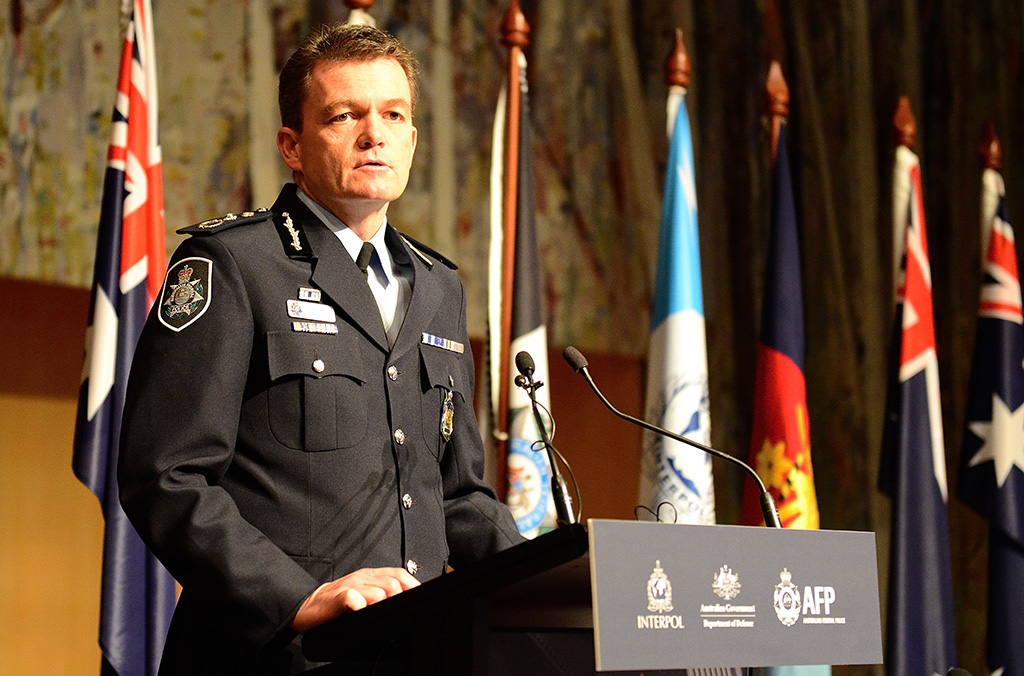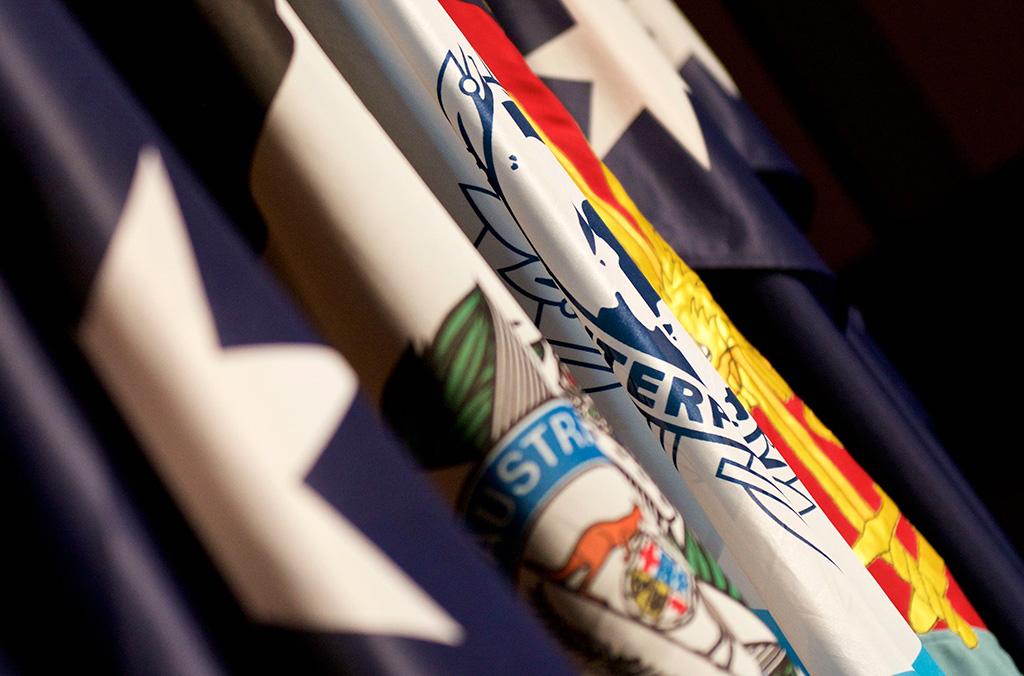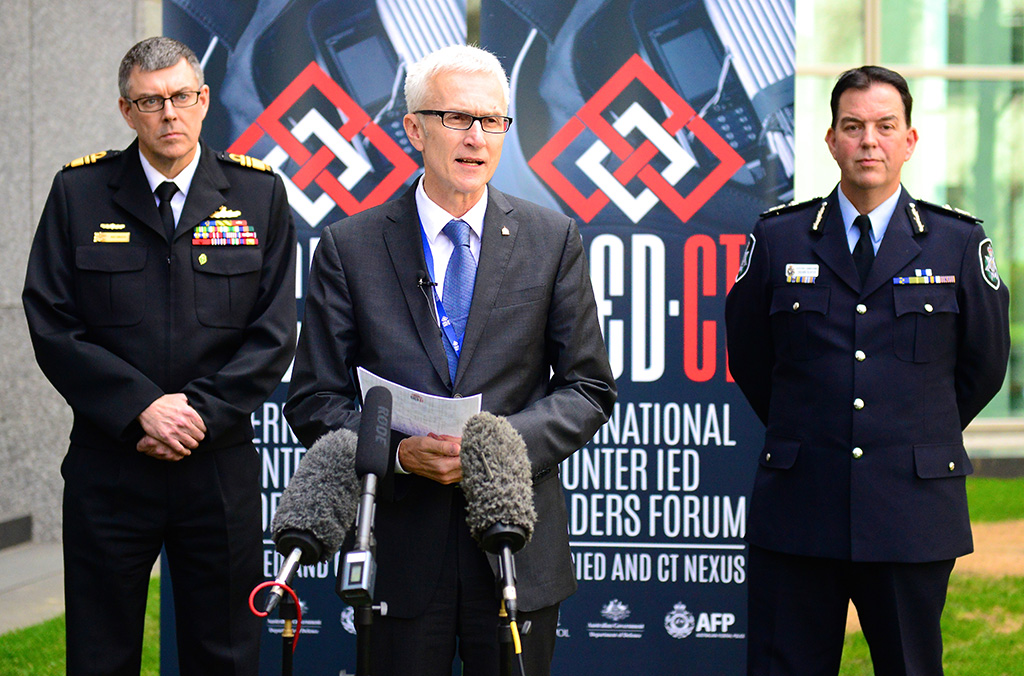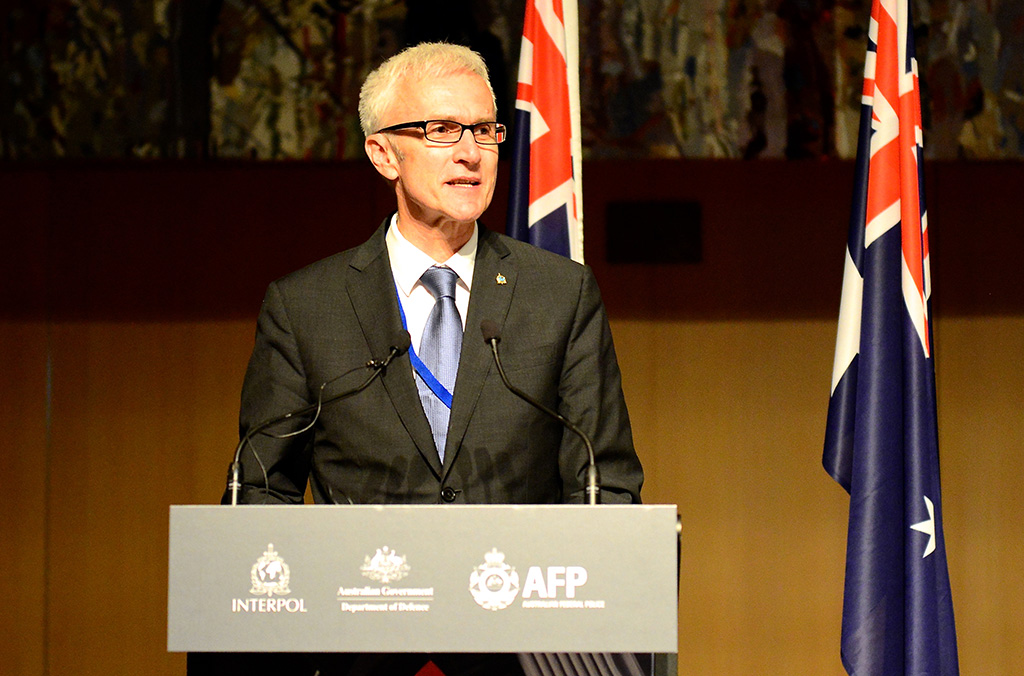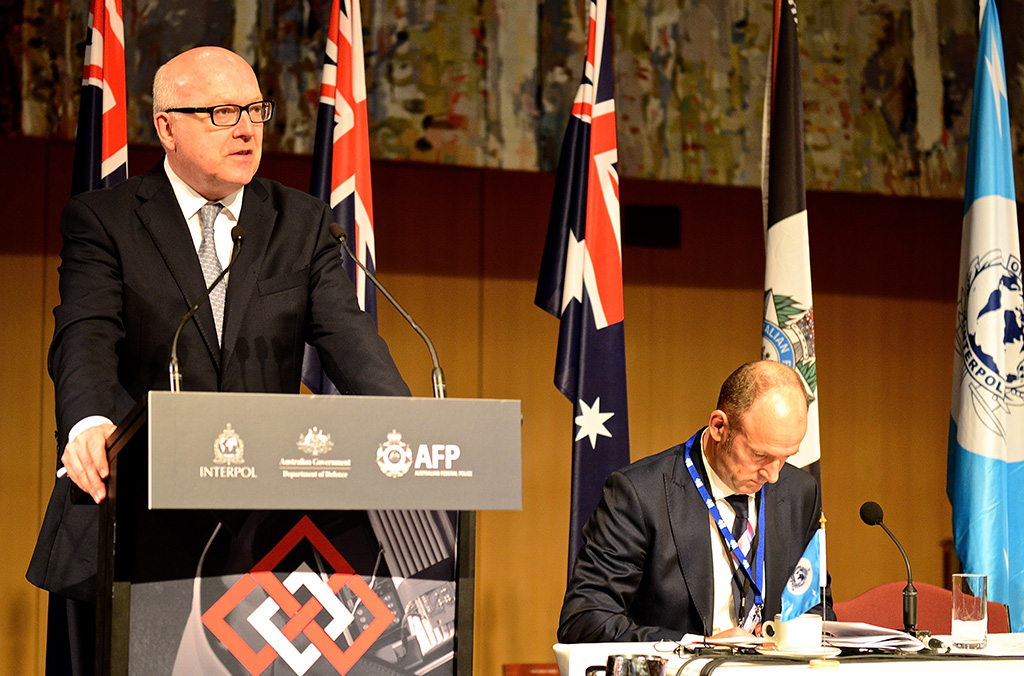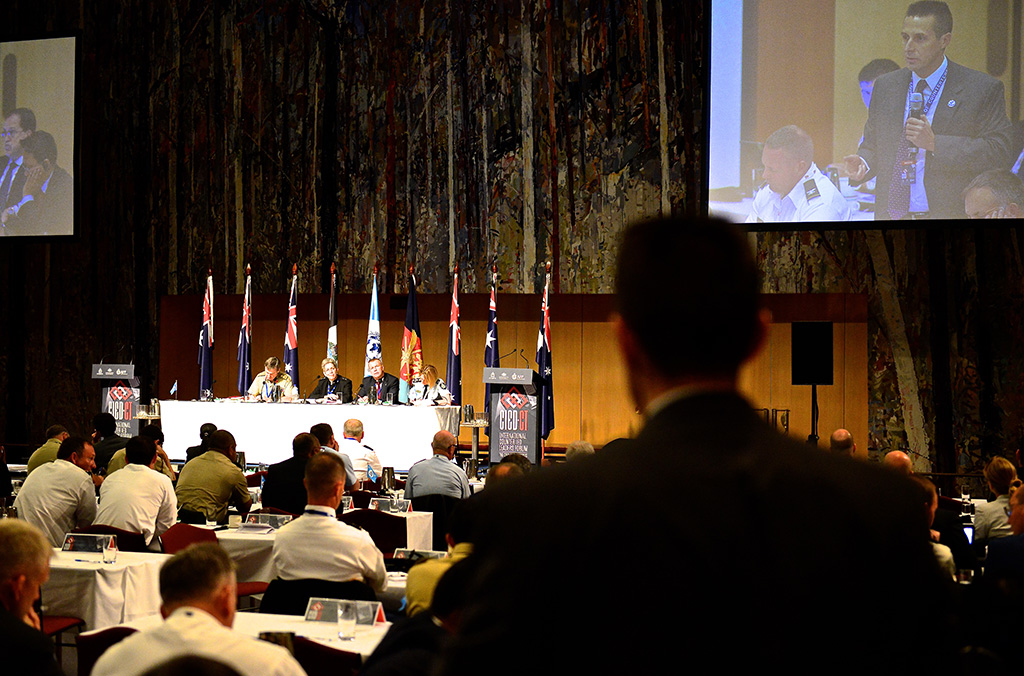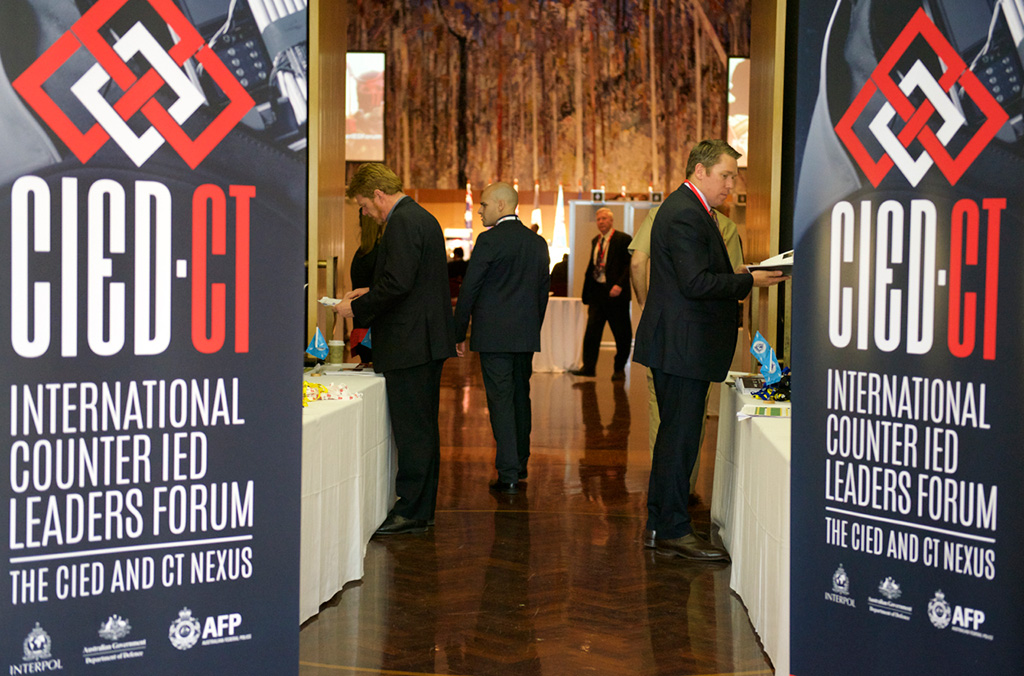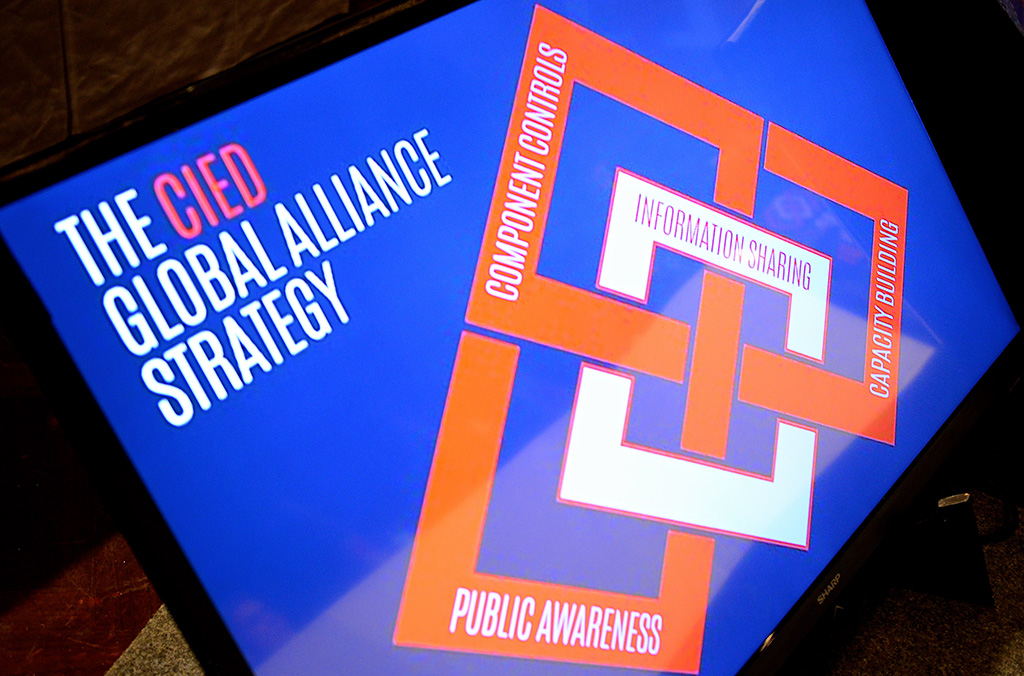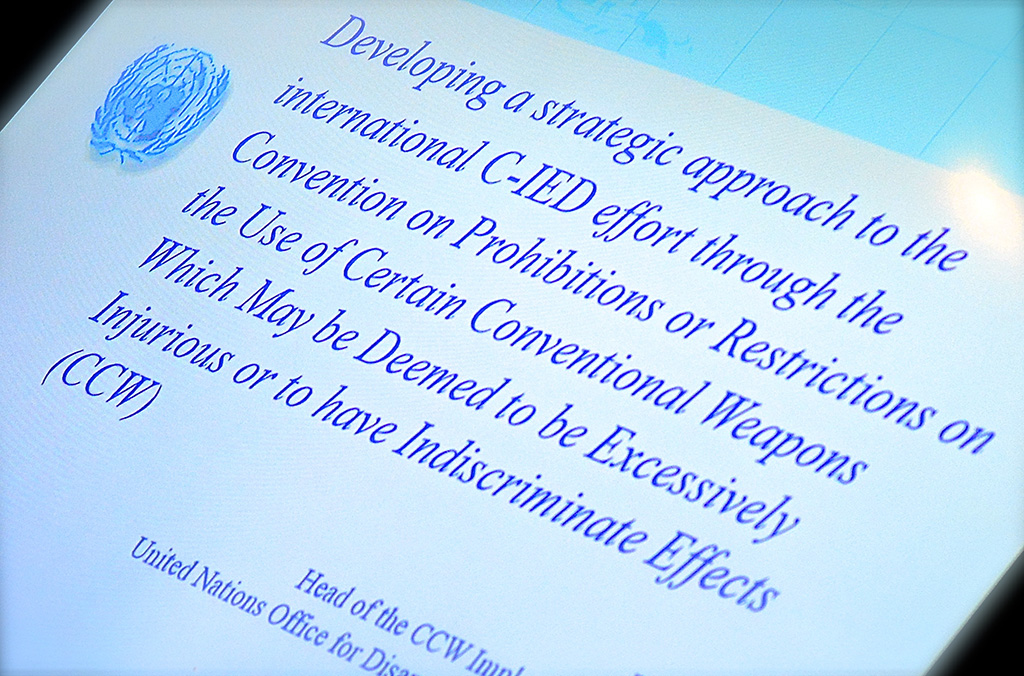CANBERRA, Australia – The inaugural International Counter-Improvised Explosive Device (CIED) Leaders’ Forum has supported the creation of a Global Alliance to unite and focus efforts in combating the IED threat.
Under this umbrella, a coalition of willing partners will develop a coordinated international effort based on four interconnecting key pillars: component controls, capacity building, public awareness and information sharing.
IED technologies, precursor materials, and individuals and groups who construct and use these weapons would be key areas for information exchange through a ‘need to share’ rather than ‘need to know’ principle.
Vice Chief of the Australian Defence Force (ADF), Vice Admiral Ray Griggs said the inaugural forum had increased awareness of common goals and enhanced the ability of military and law enforcement agencies to disrupt and neutralize IED networks.
“There is little doubt that we need a collaborative global response to the IED threat and this forum has provided a launching pad for future cooperation and information sharing,” said VADM Griggs.
“The solution does not rest solely with the military. From here the ADF will continue work with the Australian Federal Police and with our international partners towards establishing a Global Counter IED Alliance and broader consensus on how to address this threat.”
The Global Alliance will also encourage participating countries to adopt a ‘whole of government’ approach to focus law enforcement, military and diplomatic channels towards an international response to reduce the IED threat and save lives.
INTERPOL Secretary General Jürgen Stock said the world police body stood ready to play its part in moving the Alliance forward.
“IEDs are the weapon of choice of terrorists and criminals around the world,” said Secretary General Stock.
“The dangers of IEDs are not confined to the battlefield, they are an issue for every country, a threat to anyone, anywhere at any time.
“We need to take action now, to make sure information which could be vital in preventing an attack from happening is in the hands of the people who need it. The creation of this Global Alliance is an important step forward in addressing the threat of IEDs and saving lives,” concluded Mr Stock.
Australian Federal Police Assistant Commissioner Julian Slater said that information was the key in limiting the impact of IEDs across the globe.
“This week’s forum recognized that as the military and law enforcement leaders charged with protecting our communities, we need to work together to combat the use of IEDs,” said Assistant Commissioner Slater.
“Sharing appropriate information, both within countries and with other nations will in some cases require a shift in thinking from need to know, to need to share.
“This sharing can be done with appropriate protocols in place to balance the integrity of investigations with the need to inform our partners. A global knowledge bank of IED information can only assist all of us in dealing with these lethal explosives,” concluded the Assistant Commissioner.
Organized by INTERPOL, the Australian Federal Police and the Australian Department of Defence, the three-day (2 – 4 September) Forum brought together more than 300 key representatives from government, law enforcement and military services from some 70 countries and international organizations including the United Nations, NATO, the African Union and the International Bomb Data Centre.




